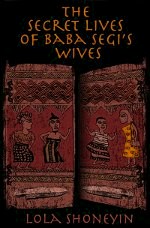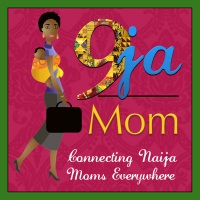Publisher: Cassava Republic Press
Author: Lola Shoneyin
Pages: 245
Assuming a reviewer could be more favorably disposed to a book on account of its aesthetics, the most attractive book in Nigeria in the year 2010 would be Lola Shoneyin’s Cassava Republic Press published “The Secret Lives of Baba Segi’s Wives”. It is a beautiful book done in black with images of women imposed on woodcuts dominating the covers. Fortunately, reviewers must with great responsibility consider weightier matters. Lola Shoneyin’s debut, accomplished in 245 pages, is the story of Ishola Alao, his four wives and his daughter. The wives, in order of “seniority”, are Iya Segi, Iya Tope, Iya Femi and Bolanle and their secret lives unravel around Bolanle, the University graduate fourth wife. The daughter is Segi, Ishola Alao’s first child and she, emphasizing the centrality of children in Nigerian life and in the novel, gives her father an identity; that of being “Baba Segi” {Segi’s father: Yoruba language}. The book begins with the raging determination of Baba Segi, a confident, illiterate, middleclass contractor, to find an end to the barrenness of his fourth wife. Being uneducated, he consults a friend, the degenerate intellectual, Teacher, who advises; Bolanle is a graduate, the way to the bottom of her situation would be found by taking her to a hospital. The novel ends amidst the cinders of Baba Segi’s household. In the fire before was laid bare the secret lives of his wives and the related, tragic death of his first child, Segi. Shoneyin achieves her story by winding it tautly and colorfully, capturing our imagination with Arachne’s skill, keeping us expectant until the very last page.
Using simple diction, Lola Shoneyin nonetheless makes use of a tricky handling of point of view, unraveling her novel mostly via an omniscient narrator whilst occasionally dipping into the minds of several characters to illumine her story with each character’s words. Hers is a complex social novel clearly interested in the issue of polygamy and its human incidence and she, understanding that there is no single track, that her novel would not succeed if written in the form of a viragiad, invites the reader to understand each character in their own circumstance so that the reader comes to anticipate their idiosyncrasies. Her handling of these two elements, diction and point of view, have the effect of giving her characters a full relief and a simple believability not easily achieved. Shoneyin achieves this and much more. There is a depth of thought evident in every sentence in the novel yet this is not the sort of labor of love that blares its effort; hers, to return to the imagery from Greece, are stitches so fine as to be invisible to the eye, hers are word-stitches of a writer, in the mold of Ondaatje, who can turn laborious effort worthy of footnotes and bells into elegant, effective sentences that strike with the irrefutable assuredness of folk sayings.
The most noteworthy technique employed in this novel is the use of “foreshadowing”, a technique widely attributed to the prose of John Steinbeck. This technique involves having simple occurrences happen earlier in the tale that recur later on, only then with a nuance. Its nature is of a vaguely disturbing premonition that, time down the line, bears unquestionable causality to a sinister real-life event. Nowhere is this technique used to more stunning effect than in the events leading up to the death of Segi. At the realization that Bolanle’s “persistent menstruation” would blow the lid off their secret lives, Iya Segi and Iya Femi co-opt the spineless Iya Tope into a plot designed to get their husband to drive Bolanle out of the house; it involved planting the head of a dead rat in Baba Segi’s room and the “discovery” of a fetish-looking calabash in Bolanle’s room. On discovery of these, Baba Segi physically assaults Bolanle, but Bolanle, who is already getting out of her lethargic tryst with being victimized, shows only pain, not a modicum of guilt. Baba Segi, further confused, goes to his friends at Ayikara who rightly deduce the obnoxious exhibits were planted by his other wives. This incident foreshadows the death, quite like a rat, of Segi; Segi is the victim of this story and she dies from ingesting a poison her mothers had meant for Bolanle. In the rat’s head event, Shoneyin gives us a hint of what will happen, to Segi, but we realize it only in retrospect.
Shoneyin’s use of foreshadows makes the reader, as a social integer, a sort of patient on a psychoanalysts couch; it is chiefly a psychological technique. Her use of irony, however, is meant to bitterly entertain and subtly censure. Irony permeates the entire book. The very first line –
“When Baba Segi woke up with bellyache for the sixth day in a row, he knew it was time to do something drastic about his fourth wife’s childlessness”
is ironic in linking her barrenness to his constitutional disorder. It is also supremely Ironic that Baba Segi spends so much effort trying to find a solution to Bolanle’s unfruitfulness, yet when he discovers why she cannot conceive, he finds himself not only unhappy but undone as well; his lot at the end of the novel is the bare rags of an ill-used man’s spirit. One more example suffices; when Iya Segi, on watching a TV news story on the arrest of a necromantic Hospital attendant with a number of pre-term babies, wonders;
“Why? Why kill innocent children?” {Page 12.}
it is both ironic and a foreshadowing – for she does unwittingly kill her own daughter in her quest to kill Bolanle, someone else’s daughter. Lola Shoneyin uses the phrase “voyeuristic thirsts” in her novel; she might as well have been winking when she wrote that, for in the active mining of the text for ironies at the inevitable second reading, the reader mimics a voyeur in more ways than one.
“The Secret Lives of Baba Segi’s Wives” is a story of lives interlinked in an unfurling tragedy; it is, simply, about the relationship between men and women. We are first brought into the ambit of this theme on the very first page when Baba Segi goes to find his mentor, Teacher, in Ayikara; Ayikara is an isle of ill repute, a Bohemia where the women are all prostitutes and where men come “across the {circling} gutter” to liberate themselves from the women of their lives. Men come to drink and talk and nurse each other’s frustrations, to celebrate each other’s triumphs. What is clear at Ayikara is that men find women so problematic that they must create social networks to share strategy and experiences . . . Equally revealing of the relationship between men and women is the story of Iya Segi. Iya Segi, the first wife, was brought up as a trader by a mother, sour that her lover had “left {me} for a beautiful woman”, who dyes the pattern of this bitterness unto her daughter’s psyche. Iya Segi’s mother states;
“Men are nothing. They are fools. The penis between their legs is all they are useful for. And even then, if not that women needed their seed for children, it would be better to sit on a finger of green plantain.”
Iya Segi, the arch-villainess, who not surprisingly has lesbian tendencies, marries her husband because the wealth from her trading, her independence, is taken away and given to Baba Segi, then a struggling apprentice son of her mother’s friend; it is this wealth that forms the basis of Baba Segi’s prosperity. Manipulative, deranged woman she may be, but, should Iya Segi not feel cheated? All she does, reprehensible as it is, are done with a philosophy consistent with her social and personal context; he who would stone her must be without sin, for the man in her life, Baba Segi who goes on a marrying spree, has not proven any different from her mother’s bitter stereotype.
Recently in Nigeria, debates around books revolve around a single issue; the fidelity of the story. This debate is one on the organics of Nigerian writing, a polarity around the recognition of a story by the people it is meant to be about. In the past decade, writers based in Nigeria have argued that a lot of the celebrated Nigerian writing so-called, mostly written by Nigerians in the Diaspora, has got little to do with Nigeria. The country in “those” novels is a Nigeria of foreign-publisher-market recipe books, inevitably one of stereotype and half-truths. It has been felt that these novels pander to western labels of “those tribal Africans”. Even positive things, the achievements of Africans in the Diaspora for example, are spun in a way to show that this genius could not have flourished were they “back home”, conveniently ignoring the ultimate Western culpability for brain drains. Lola Shoneyin’s debut cannot be flawed on the charge of it pandering to stereotype. The author evidently has an issue with polygamy, but she is careful to show that it is an organic institution in which everyone actively participates in their downward spiraling humiliations. Each of Baba Segi’s wives married him on their free will; none was forced to, perhaps with the exception of Iya Tope. The author also makes it clear that each of them could have left him at any time.
Lola Shoneyin is a writer with the vast vision of a spider and the loving eyes of a sun, seeing everything at once as it is really; hers is the compassion of a brave and knowing writer writing about characters she is familiar with, doing consistent deeds, woven into a seamless story that is as complex, and simple, as life. Lola Shoneyin’s world is her portrait of Arachne’s web and it is no more the fault of the butterfly that is caught in than it is the slipup of the spider that spins than it is of the eye that sees all and retains the picture in mind, in print, for posterity. In understanding this, we see exactly why hers makes it into the pack of just a few books published over the last decade that are, without doubt, authentically Nigeriana.
In order to find out what the secret lives of Baba Segi’s wives are about and why it is so catastrophic to his household, all literature lovers should rush to their nearest bookstore or login to an e-store and order a copy of Lola Shoneyin’s stunning debut.”The Secret Lives of Baba Segi’s Wives” is a book that will be a popular reader’s delight that will at the same time set the agenda of the gender debate in Academe over the subsequent years. Hers is an achievement worth heralding.
Richard Ugbede Ail, a lawyer, is Editor-in-Chief of the Sentinel Nigeria Magazine, www.sentinelnigeria.org. He lives in Jos, Nigeria, where he writes from.
Related posts:
Further reading
- Casino Non AAMS
- Siti Scommesse Non Aams
- Non Gamstop Casino
- Casino Not On Gamstop
- Online Casinos UK
- Non Gamstop Casino UK
- Slots Not On Gamstop
- Non Gamstop Casino Sites UK
- Best Non Gamstop Casinos
- Online Casino Zonder Cruks
- Not On Gamstop Casinos
- Casinos Not On Gamstop
- Casinos Not On Gamstop
- Non Gamstop Casino UK
- Casino Online Non Aams
- Slot Sites UK
- Slot Websites UK
- Meilleur Casino En Ligne
- Casinos Not On Gamstop
- UK Casino Sites Not On Gamstop
- Casino Not On Gamstop
















@richard..you have done well bro…this is nvery good though you left out some colors in the rainbow of this great work…i was at the BOOK READING for this same work in Abuja with a colleague as a reporter and even got a complimentary copy… ‘BABA SEGI’S WIVES’… you need to have seen Lola do her reading with style..great book…
Welcome Richard to this lovely community… I am so thrilled to read this beautiful piece of review… I have been desiring to read Lola’s book for a while now but something keeps on postponing it… You have indeed lit the zeal in me and i will definitely read it soon… I’m still awaiting your debut novel… lol Cheers…
@idoko, u need to read the book bro…smashing hot!
Hmm…I am now jealous. When will my work get reviewed like this? Hehehe.
I am happy with the way Nigerian literature is going these days. For those of us who write Popular fiction-style stories, don’t blame us; it’s what we grew up on. We are children of the times, I guess.
I’ll definitely look out for this book.
soon, dont worry..keep writing
Interesting review, inspires a certain desire to want to read the book. I’l be reading it next, after I’m done with Adoabi’s ‘I do not come to you by chance’.